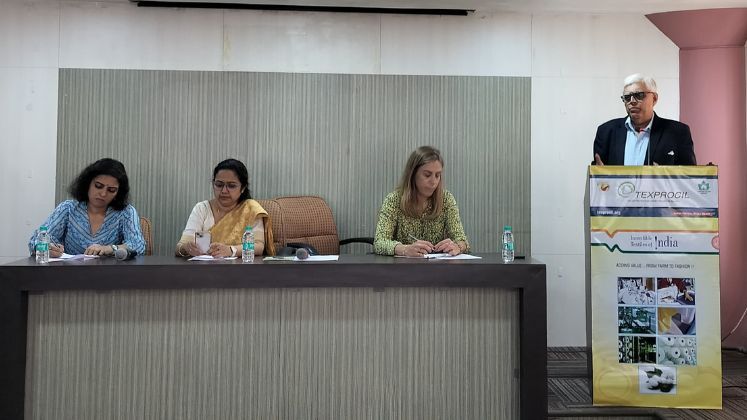
The Fair Wear Foundation and the Confederation of Indian Textile Industry (CITI) have partnered to introduce a programme that will give Indian textile exporters the necessary resources to comply with the recently implemented Corporate Sustainability Due Diligence Directive (CSDDD) of the European Union.
Introduced in May 2024, this directive represents a substantial departure from trade compliance by requiring thorough environmental and human rights due diligence throughout global supply chains.
Advancing Sustainable and Responsible Business Practices: HRDD, CSDDD, and Chemical Compliance, CITI’s third workshop, was recently held in Mumbai as part of this collaboration.
Chandrima Chatterjee, Secretary General of CITI, highlighted how the CSDDD will revolutionise the Indian textile industry. “The CSDDD is a significant shift that emphasises the necessity of conforming to international sustainability standards,” she said. “Deeper integration with international frameworks is essential to maintain our competitive edge in the global market, even though India has strong labour and environmental regulations.”
In order to gain access to international markets, the sector is moving from voluntary sustainability measures to mandatory compliance, according to Dr. Siddhartha Rajagopal, Executive Director of TEXPROCIL. Through proactive adaptation, he demonstrated how new global rules, such as emerging carbon price requirements and good governance norms, may establish Indian textile exporters as leaders in responsible trade.
The Fair Wear Foundation’s Country Manager for India, Mousumi Sarangi, emphasised the value of proactive due diligence over merely complying with regulations and provided participants with practical tactics that combine shared accountability and profitability.
The standards of the CSDDD were broken down in depth by Annabel Meurs, Associate Director of the Fair Wear Foundation in the Netherlands. She underlined the necessity of industry cooperation to safeguard suppliers’ interests in the face of growing compliance complexity.






